Are you confused about the difference between a retailer, wholesaler, and distributor? Our comprehensive guide breaks down the roles and responsibilities of each, helping you make informed decisions about your business.
Retailer vs Wholesaler vs Distributor
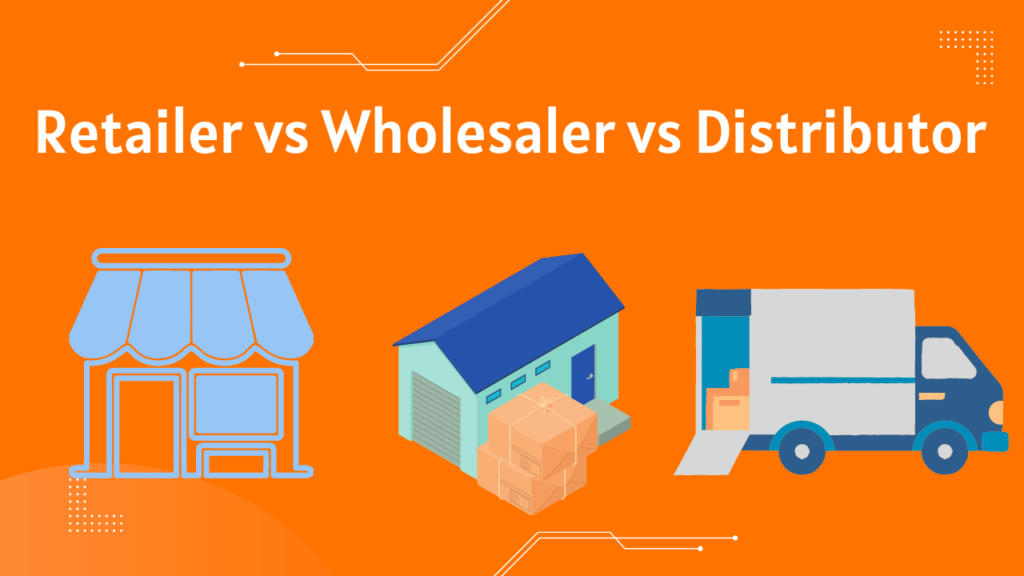
Many people often confuse wholesalers, retailers, and distributors, but they are all different from each other. Each has its unique functions and responsibilities in the supply chain process. In this article, we will explore the differences between these three key players in the supply chain and their advantages and disadvantages.
What is a Distributor?
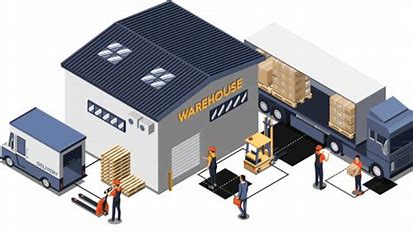
A distributor is an intermediary between manufacturers and retailers. Distributors purchase products (usually in bulk) from manufacturers at wholesale prices and then sell them to retailers, who then sell the products to consumers. Distributors help manufacturers expand their reach by providing logistical support and opening up new markets.
Distributors usually have a large portfolio of products from different manufacturers. They manage the inventory, logistics, shipping, and delivery of goods to retailers or even directly to customers. The advantage of using distributors is that they offer a one-stop-shop for retailers. They get access to a diverse range of products and can get them delivered in a timely and efficient manner. Distributors also offer reduced transportation and handling costs since they are buying in bulk and passing on the savings to retailers.
Moreover, distributors provide a lot of value-added services to manufacturers. They help them with marketing, sales, and customer support. Distributors have a deep understanding of the market and can provide valuable insights into customer behavior and preferences. They can also help manufacturers with product development and design, ensuring that the products meet the needs of the market.
However, distributors also have some disadvantages. They often charge higher prices for their products than manufacturers since they need to add a markup to make a profit. Moreover, retailers are usually bound to a contract with a specific distributor and cannot shop around for better prices. This can limit their options and make it difficult for them to find the best deals.
Another disadvantage of using distributors is that they can sometimes be unreliable. If a distributor goes out of business or fails to deliver on time, it can have a significant impact on the manufacturer’s business. Manufacturers need to carefully vet their distributors and ensure that they have a good track record of delivering on their promises.
Despite these challenges, distributors play a critical role in the supply chain. They help manufacturers expand their reach and provide retailers with a convenient and efficient way to access a wide range of products. Moreover, they provide valuable services to manufacturers, helping them with marketing, sales, and customer support. As the global economy continues to grow, the role of distributors is likely to become even more important.
What is a Wholesaler?
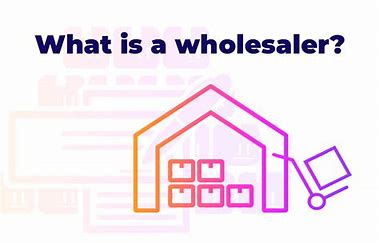
Wholesalers are intermediaries that purchase products from manufacturers and sell them directly to retailers or bulk buyers. Wholesalers buy products in large quantities and store them in their warehouse. Unlike distributors, wholesalers usually specialize in a particular product or a group of products only.
Wholesalers play an important role in the supply chain process by acting as a bridge between manufacturers and retailers. They offer a range of benefits for retailers, including access to a wide variety of products, reduced transportation costs, and better pricing. Since wholesalers buy in bulk, they can negotiate better prices from manufacturers and pass on the savings to their retail customers.
Moreover, wholesalers provide a valuable service by helping retailers manage their inventory. By buying in bulk, wholesalers can ensure that retailers have access to a steady supply of products. This can help retailers avoid stockouts and maintain a consistent level of inventory.
In addition to providing access to a wide range of products, wholesalers can also offer valuable insights into market trends and consumer behavior. Wholesalers are often in direct contact with retailers and can provide feedback on which products are selling well and which ones are not. This information can be invaluable for manufacturers looking to improve their products or retailers looking to optimize their inventory.
However, wholesalers also have some downsides. They lack the logistical support and market reach that distributors offer. Retailers will need to coordinate with multiple wholesalers and manage the logistics of receiving products from different sources. This can result in higher handling and shipping costs. Moreover, wholesalers require retailers to make a minimum purchase, which can be difficult for small retailers.
Despite these challenges, wholesalers continue to play a critical role in the supply chain process. By providing access to a wide range of products, offering better pricing, and helping retailers manage their inventory, wholesalers help ensure that products are available to consumers when and where they need them.
What is a Retailer?
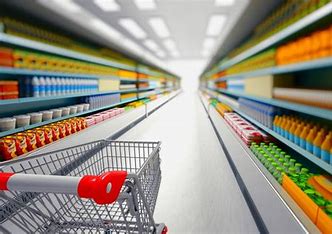
Retailers are an essential part of the economy, providing a crucial link between manufacturers and consumers. They offer a wide range of products and services to customers, from groceries and clothing to electronics and home goods. Retailers are responsible for ensuring that these products are available to consumers when and where they need them.
One of the main benefits of shopping at a retailer is convenience. Retailers are often located in easily accessible areas, making it easy for customers to find what they need. They also offer a variety of payment options, including cash, credit, and debit, making it simple for customers to make purchases.
In addition to convenience, retailers offer competitive pricing. They are constantly monitoring the market to ensure that their prices are in line with industry standards. This means that customers can often find great deals on products at their local retailer.
Another benefit of shopping at a retailer is the wide range of products available. Retailers typically carry a variety of brands and styles, giving customers more options to choose from. This is particularly important for customers who are looking for specific items or who have unique tastes and preferences.
Despite these benefits, retailers face many challenges in today’s fast-paced business environment. One of the biggest challenges is keeping up with the latest trends in the market. Retailers need to constantly monitor consumer preferences and adjust their product offerings accordingly.
Another challenge that retailers face is managing their inventory effectively. They need to ensure that they have enough stock on hand to meet customer demand, while also avoiding overstocking, which can lead to waste and reduced profits.
Finally, retailers need to provide high levels of customer service to ensure that their customers are satisfied with their shopping experience. This includes everything from providing helpful and knowledgeable staff to offering easy returns and exchanges.
Overall, retailers play a critical role in the economy, providing consumers with the products and services they need to live their lives. While they face many challenges, retailers are constantly evolving to meet the changing needs of their customers and the market.
Also checkout more importance’s of the Floor Loaded Container?
Key Differences Between Wholesaler and Distributor
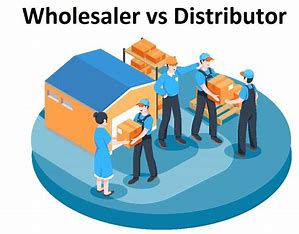
When it comes to buying products in bulk, retailers have two main options: they can either purchase from a wholesaler or a distributor. While these terms are often used interchangeably, there are some key differences between the two that retailers should be aware of.
One of the main differences between a wholesaler and a distributor is the range of products they offer. Wholesalers tend to focus on a specific product or product group, such as electronics or clothing. This allows them to develop expertise in that area and negotiate directly with manufacturers to get the best prices. Distributors, on the other hand, tend to offer a broader range of products from different manufacturers. This can make it easier for retailers to source all of the products they need from a single supplier.
Another key difference between wholesalers and distributors is the level of support they offer. Distributors typically provide logistical support, handling the shipping and delivery of products to retailers or directly to customers. This can be a major advantage for retailers who don’t have the resources to handle these tasks themselves. Wholesalers, on the other hand, usually sell products directly to retailers and don’t offer this kind of support.
One of the biggest advantages of buying from a wholesaler is the lower prices they can offer. Since they negotiate directly with manufacturers, they can often offer products at a lower price than distributors. This can be especially important for retailers who need to keep their costs low to remain competitive. However, wholesalers may not have the same market reach as distributors, which can make it more difficult for retailers to find the products they need.
In conclusion, while both wholesalers and distributors can be valuable partners for retailers, it’s important to understand the differences between the two. Wholesalers offer lower prices and expertise in a specific product group, while distributors offer a broader range of products and logistical support. Retailers should carefully consider their needs and budget when choosing between the two.
While the Retailer, Wholesaler, Distributor model has its advantages, there are also some disadvantages to consider. For example, retailers may have limited choices when it comes to product selection, as they are reliant on the inventory provided by their wholesaler or distributor. This can limit their ability to differentiate themselves from competitors.
Wholesalers may also face challenges in terms of maintaining a consistent supply of products. They may experience shortages or delays in receiving products from manufacturers, which can impact their ability to fulfill orders for retailers.
Distributors, on the other hand, may struggle with the costs associated with providing logistical support and market reach. These additional services can be expensive, which can drive up the prices of the products they offer. This can make it difficult for retailers to compete on price with other retailers who source their products from wholesalers.
Despite these challenges, the Retailer, Wholesaler, Distributor model remains a popular choice for many businesses. It provides a clear and efficient supply chain process, and allows businesses to focus on their core competencies while relying on partners to handle other aspects of the supply chain.
Overall, the key to success with this model is to carefully evaluate the strengths and weaknesses of each partner in the supply chain, and to develop strong relationships based on trust and mutual benefit.
How to Choose Between a Wholesaler and Distributor?
Choosing between a wholesaler and a distributor depends on your specific needs and budget. Wholesalers are ideal for retailers who specialize in a particular product and require large quantities of stock. They offer better pricing and can provide retailers with a more personalized service.
Distributors are ideal for retailers who require a one-stop-shop for all their inventory needs. They offer a range of products from different manufacturers, manage the shipping and delivery of products, and provide logistical support.
Conclusion
To summarize, the Retailer, Wholesaler, Distributor model provides a clear overview of the supply chain process. Each player has its unique functions and responsibilities. Wholesalers and distributors offer different products and services, and retailers must choose the one that best aligns with their specific needs and budget.
The key takeaway is that retailers must thoroughly analyze their business requirements, budget, and goals before choosing a wholesaler or distributor. By doing so, they will be able to develop a strong supply chain and ensure long-term business success.
